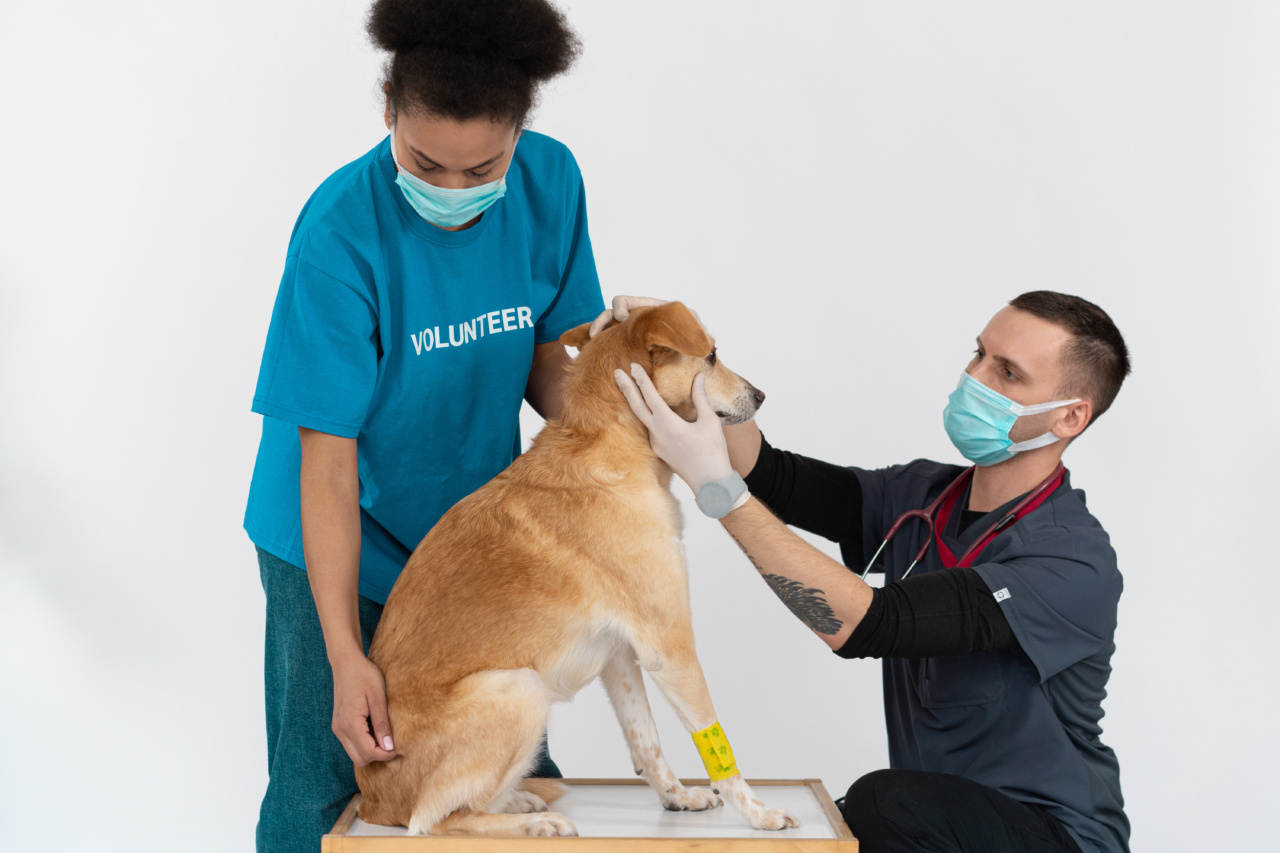Dogs, like humans, can develop allergies. These allergies can be caused by various factors such as food, environmental allergens, and even certain medications.
As a responsible pet owner, it is essential to understand how to care for dogs with allergies and provide them with the necessary support and treatment to ensure their well-being. In this article, we will explore the different types of allergies, common symptoms, and effective ways to manage and alleviate your furry friend’s allergies.
Types of Allergies in Dogs
Just like humans, dogs can develop various types of allergies. Some common types of allergies in dogs include:.
- Food Allergies: Food allergies occur when a dog’s immune system reacts negatively to certain ingredients in their food. Common allergens include beef, chicken, dairy products, wheat, and soy.
- Environmental Allergies: Environmental allergies, also known as atopic dermatitis, are caused by allergens present in the environment such as pollen, dust mites, mold, and certain plants.
- Insect Bite Allergies: Some dogs may develop an allergic reaction to insect bites, particularly from fleas, ticks, and mosquitoes. This can result in intense itching, redness, and discomfort.
- Contact Allergies: Contact allergies occur when a dog’s skin comes into direct contact with certain irritants or allergens such as certain cleaning products, fabrics, or even certain plants.
Common Symptoms
Dogs with allergies may exhibit various symptoms, which may vary depending on the type and severity of the allergy. Some common symptoms include:.
- Itching and Scratching: Excessive itching, biting, and scratching is one of the primary signs of allergies in dogs. Their skin may become red, inflamed, and even develop sores.
- Ear Infections: Allergies can also lead to ear infections in dogs. Symptoms may include redness, swelling, discharge, and a strong odor coming from the ears.
- Excessive Licking: Dogs with allergies may excessively lick their paws or other parts of their body. This can result in further irritation and potential secondary infections.
- Sneezing and Watery Eyes: Like humans, dogs may sneeze frequently and have watery eyes if they are allergic to certain environmental factors.
- Gastrointestinal Issues: Food allergies can manifest as gastrointestinal problems in dogs, including vomiting, diarrhea, and overall poor digestion.
Diagnosing Dog Allergies
If you suspect that your dog has allergies, it is crucial to consult a veterinarian for an accurate diagnosis. The vet will perform a thorough examination and may recommend the following diagnostic tests:.
- Allergy Test: Allergy tests can help identify specific allergens that are causing a dog’s allergic reaction. These tests may include skin tests or blood tests.
- Elimination Diet: In cases of food allergies, an elimination diet may be recommended. This involves removing potential allergens from the dog’s diet and reintroducing them one by one to determine the trigger.
Managing and Alleviating Allergies
While allergies cannot be cured entirely, there are several ways to manage and alleviate the symptoms for a better quality of life for your furry friend:.
- Identify and Avoid Allergens: Once you have identified the specific allergens, take necessary measures to minimize your dog’s exposure to them. This may involve keeping them away from certain plants or using hypoallergenic bedding.
- Regular Bathing: Regular bathing with a hypoallergenic shampoo can help remove allergens from your dog’s coat and soothe their skin. Additionally, it can help reduce itching and prevent secondary infections.
- Prescribed Medications: In some cases, veterinarians may prescribe antihistamines, corticosteroids, or immunotherapy to manage the symptoms and provide relief to the dog.
- Dietary Changes: If your dog has food allergies, your veterinarian may recommend a hypoallergenic or limited-ingredient diet that excludes the specific allergens.
- Regular Veterinary Check-ups: It’s important to schedule regular check-ups with your veterinarian to monitor your dog’s condition, adjust treatment if necessary, and ensure their overall well-being.
Creating a Safe Environment
To provide the best care for your dog with allergies, it’s important to create a safe environment:.
- Clean Living Area: Regularly clean your dog’s living area, including their bedding, toys, and any surfaces they come into contact with. This helps remove potential allergens and reduces the risk of exposure.
- Avoid Irritants: Identify and avoid household cleaners, chemicals, and other irritants that may trigger your dog’s allergies or cause skin irritation.
- Proper Grooming: Regular grooming helps keep your dog’s coat clean and free of allergens. It also allows you to monitor their skin for any signs of irritation or allergies.
By following these guidelines and working closely with your veterinarian, you can provide the best possible care for your beloved dog with allergies.
Remember, understanding their specific needs and providing necessary support will help them live a happy and comfortable life despite their allergies.































